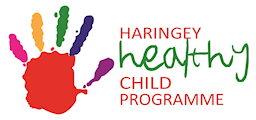Antenatal

When your pregnancy reaches the 28-36-week stage, the Health Visiting team will contact you, introducing our service and supporting you to think about your transition to parenthood. This contact may take the form of a letter or a home visit.
If you need support for you and your child, please have a look through the links and resources below.
You can also contact us directly for further advice or if you would like to speak to a Health Visitor.
Managing minor illnesses
NHS Healthier Together: Fever
NHS Healthier Together: Cough
NHS Healthier Together: Skin rash
NHS Healthier Together: Sore throat
NHS Healthier Together: Stomach ache
NHS Healthier Together: Vomiting
NHS Healthier Together: Earache
NHS Healthier Together: Head injury
NHS Healthier Together: Breathing issues
NHS Healthier Together: Diarrhoea
NHS Healthier Together: Cough
NHS Healthier Together: Skin rash
NHS Healthier Together: Sore throat
NHS Healthier Together: Stomach ache
NHS Healthier Together: Vomiting
NHS Healthier Together: Earache
NHS Healthier Together: Head injury
NHS Healthier Together: Breathing issues
NHS Healthier Together: Diarrhoea
Mental Health and Wellbeing
Samaritans 116 123
Domestic Abuse
If you are in immediate danger you should always call the police on 999. If you think you may need help or support, phone one of the following numbers. You can also speak to your GP or Health Visitor.
Solace Women’s Aid: Advocacy and Support Service 080 8802 5565
nia: Supporting high risk survivors and families, information about local help and support 020 7683 1270
Victim Support London: Free, confidential support services, for all victims of crime including male victims 0808 168 9291
IMECE Women’s Centre 020 7354 1359
Samaritans 116 123
Forced Marriage Unit: Providing information and advice for British nationals forced into marriage 020 7008 1500
Infant Feeding and Relationship Building
Please have a look at our dedicated Infant Feeding and Relationship Building page for resources and information on support available.
Domestic Abuse
If you are in immediate danger you should always call the police on 999. If you think you may need help or support, phone one of the following numbers. You can also speak to your GP or Health Visitor.
Solace Women’s Aid: Advocacy and Support Service 080 8802 5565
nia: Supporting high risk survivors and families, information about local help and support 020 7683 1270
Victim Support London: Free, confidential support services, for all victims of crime including male victims 0808 168 9291
IMECE Women’s Centre 020 7354 1359
Samaritans 116 123
Forced Marriage Unit: Providing information and advice for British nationals forced into marriage 020 7008 1500
Complex Health Needs or Disability
Having a child with a disability and/or special educational needs may at times be overwhelming, however, there is a lot of support available for your child and for you.
Last updated24 Mar 2025

